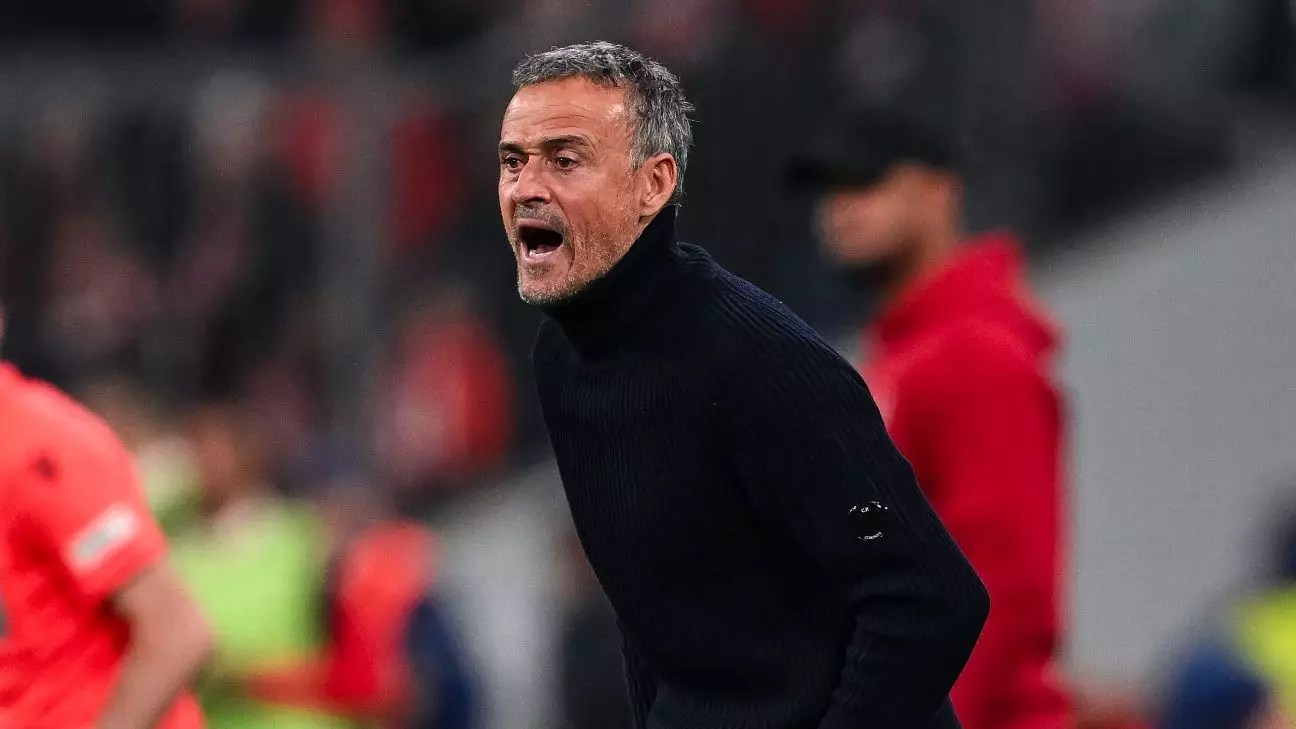Luis Enrique, the head coach of Paris Saint-Germain (PSG), faced the media with a charged demeanor following the club’s recent Champions League loss to Bayern Munich. The match, which saw PSG reduced to ten men after Ousmane Dembélé’s sending-off in the 58th minute, ended in a disappointing 1-0 defeat—marking the team’s third loss in their last four outings in the prestigious competition. This defeat not only raises questions about the team’s current form but also casts a shadow on their ability to compete at the highest level.
When a journalist queried him about accountability for the defeat, Enrique was forthright in his response, attributing full responsibility to himself. In an assertive yet somewhat defensive tone, he proclaimed, “Responsibility is always global in the good times and the bad times.” This statement reflects a deeper understanding of the pressures managers face in high-stakes environments like the Champions League. However, while it’s commendable for a coach to take responsibility, the consistency of such accountability across various matches is crucial for overall team morale.
The statistics paint a grim picture: PSG has managed to secure only one win in their last four Champions League games, accumulating merely one point out of a possible twelve. For a club of PSG’s caliber, these numbers are unacceptable and hint at larger issues, both tactically and mentally. Enrique’s observation that these “annoying defeats” provide insights into which players may have a future at the club is particularly telling. It suggests that the current squad’s performance is under scrutiny, and changes may be imminent. Such analysis underscores the importance of reflecting on the team’s dynamics during challenging times.
Despite the grim scenario, it is essential to highlight Enrique’s perspective on growth and learning through adversity. His comments express frustration with the team’s predicament but also indicate a commitment to evolving from these experiences. Losing a Champions League match at home, as he stated, is “very frustrating,” yet it could serve as a catalyst for necessary reforms within the team. The challenge lies not only in understanding the tactical failures that led to the losses but also in reigniting the passion and drive within his players.
As PSG navigates this turbulent phase, the focus will inevitably shift toward future matches and building a more resilient squad. With three games left in the Champions League group stage and dwindling hopes for advancement, Luis Enrique’s leadership will be tested further. The overarching sentiment should be one of resilience, learning, and commitment to improvement. Only time will tell if this defeat is merely a bump in the road or indicative of a more profound issue within PSG’s aspirations of European dominance. It’s a moment for reflection, growth, and ultimately, change.


Leave a Reply